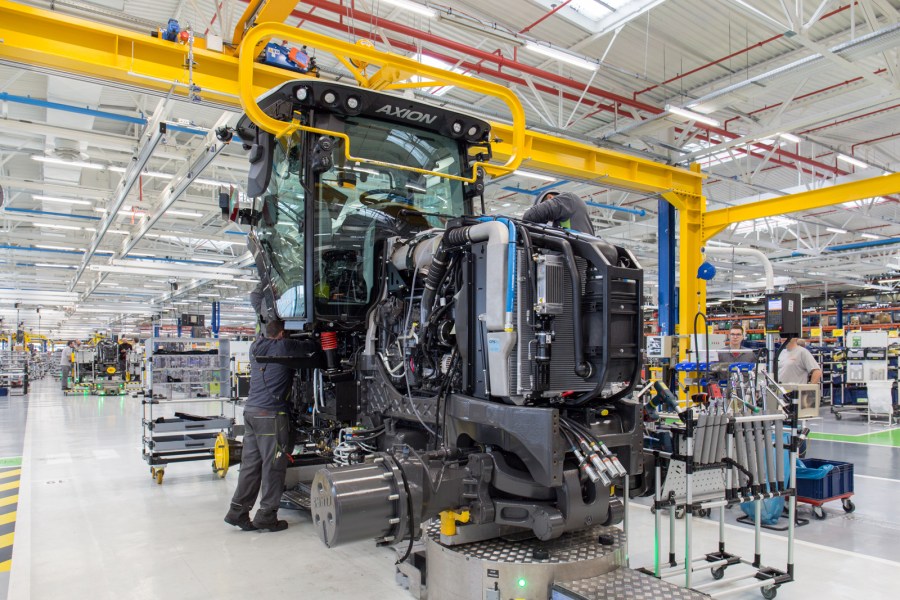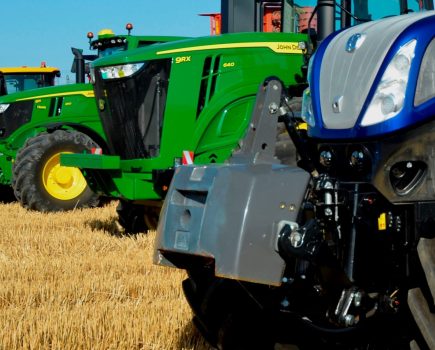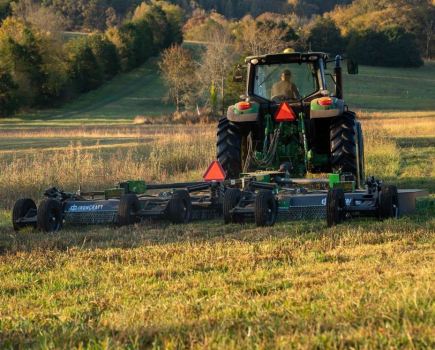Following three years of modernisation and investments totalling €40m, the Claas tractor factory in Le Mans, France, is officially up and running.
Described as one of the world’s most advanced tractor plants, the finished result contains a new automated warehouse, new function and brake tests benches, new wheel assembly process, new fluids process and a new paint finishing bench.
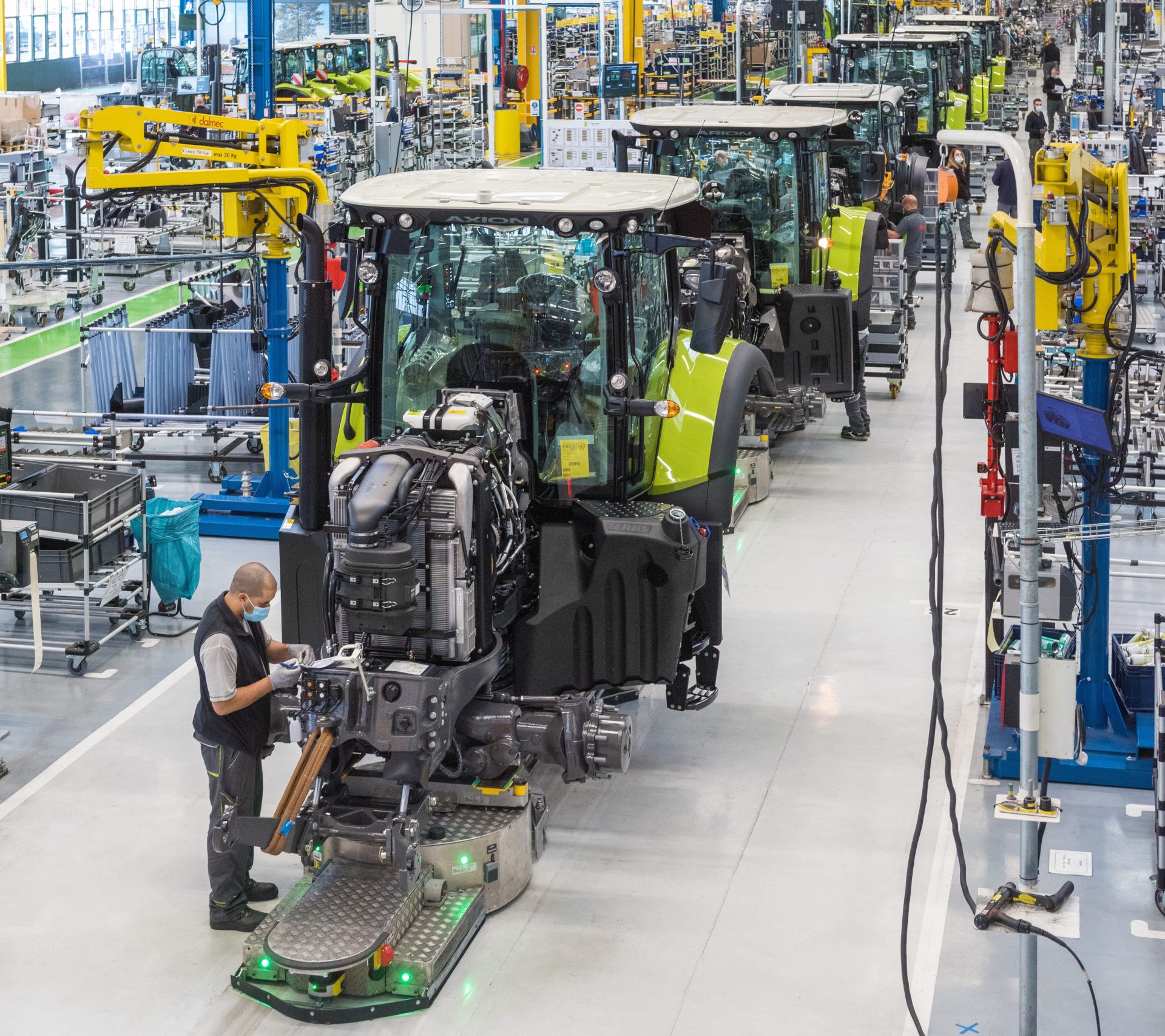
A significant contribution to the automation of production is made by the 40 driverless wire-guided automated guides vehicles (AGVs) on the 1.2km assembly line (100 work stations).
These fully automatic carrier vehicles transport the tractors from the first to the last assembly station. Capable of moving up to 20t at a time, they provide sufficient load capacity for all current series, as well as for future higher performance models.
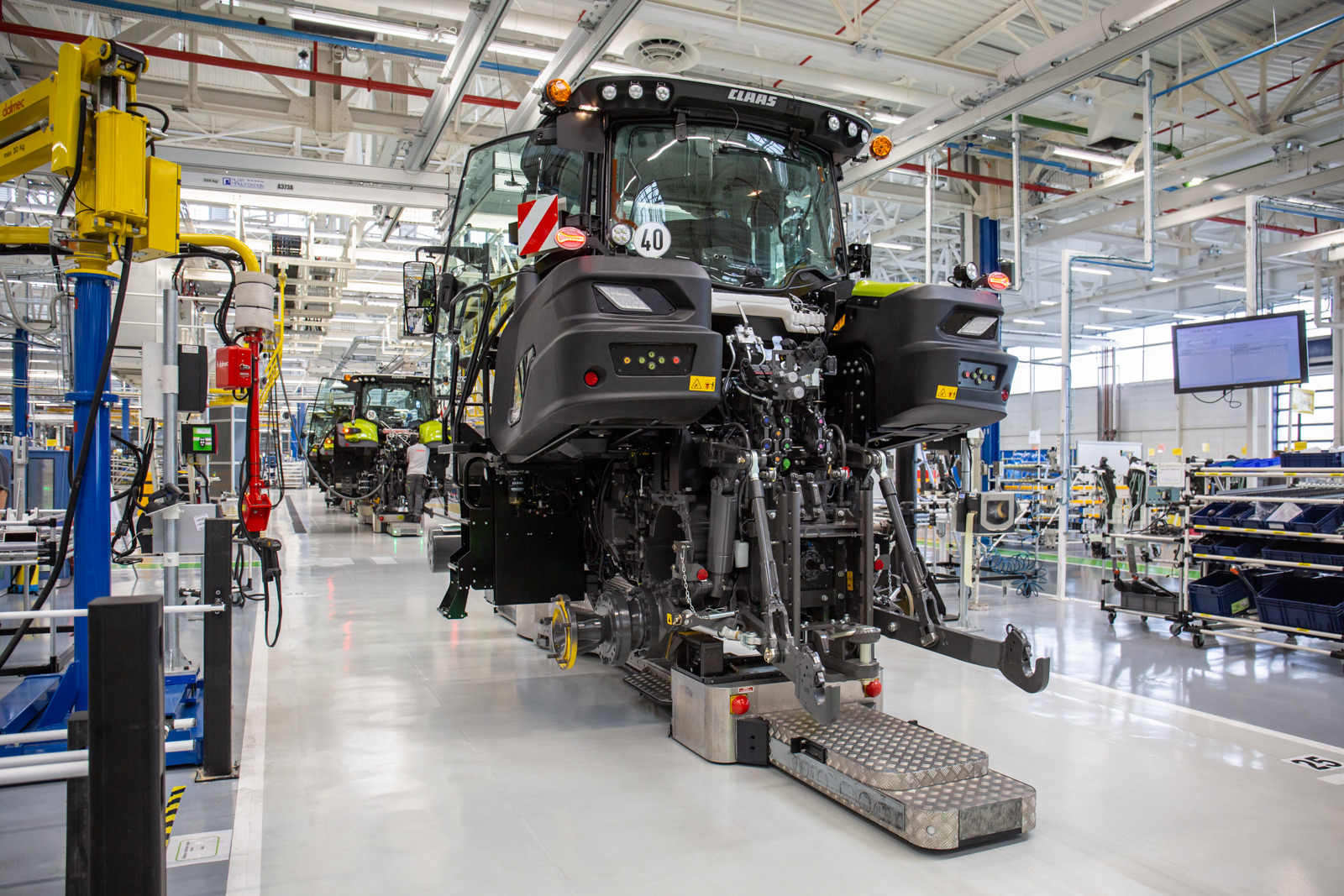
The tractor business is a key growth driver for Claas and the factory is ready for further growth, is the message. In future, daily production at Le Man will be increased to as many as 60 tractors a day (single shift) and an annual production capacity of more than 13,000 tractors compared to around 10,000 units today. The plan is to reach 13,000 units within the next couple of years.
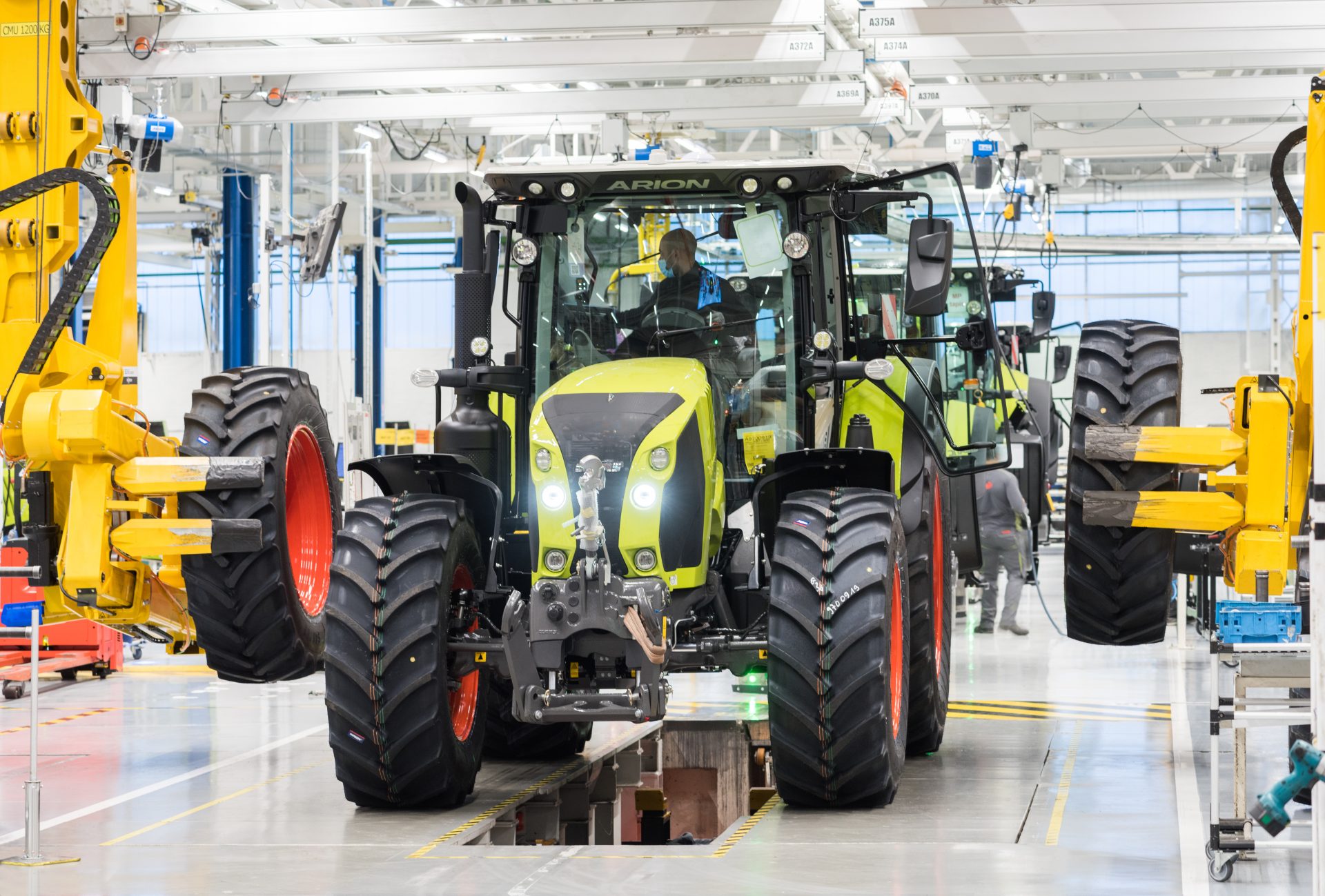
Tractor exports from Le Mans have risen from 33% to 70% during the last 20 years. Germany is the most important export market.
At present, six tractor model ranges from 75-460hp are produced at the facility. Together with the development centre in Vélizy near Paris and the test and validation centre in Trangé, around 1,000 people are employed in Le Mans.
The locations cooperate closely with other development centres and plants, such as in Germany with Claas E-Systems in Dissen or with Claas Industrietechnik in Paderborn, where the Terra Trac crawler track units for the Axion 900 Terra Trac and the CVT for the Arion 500 and Arion 600 model series are built.
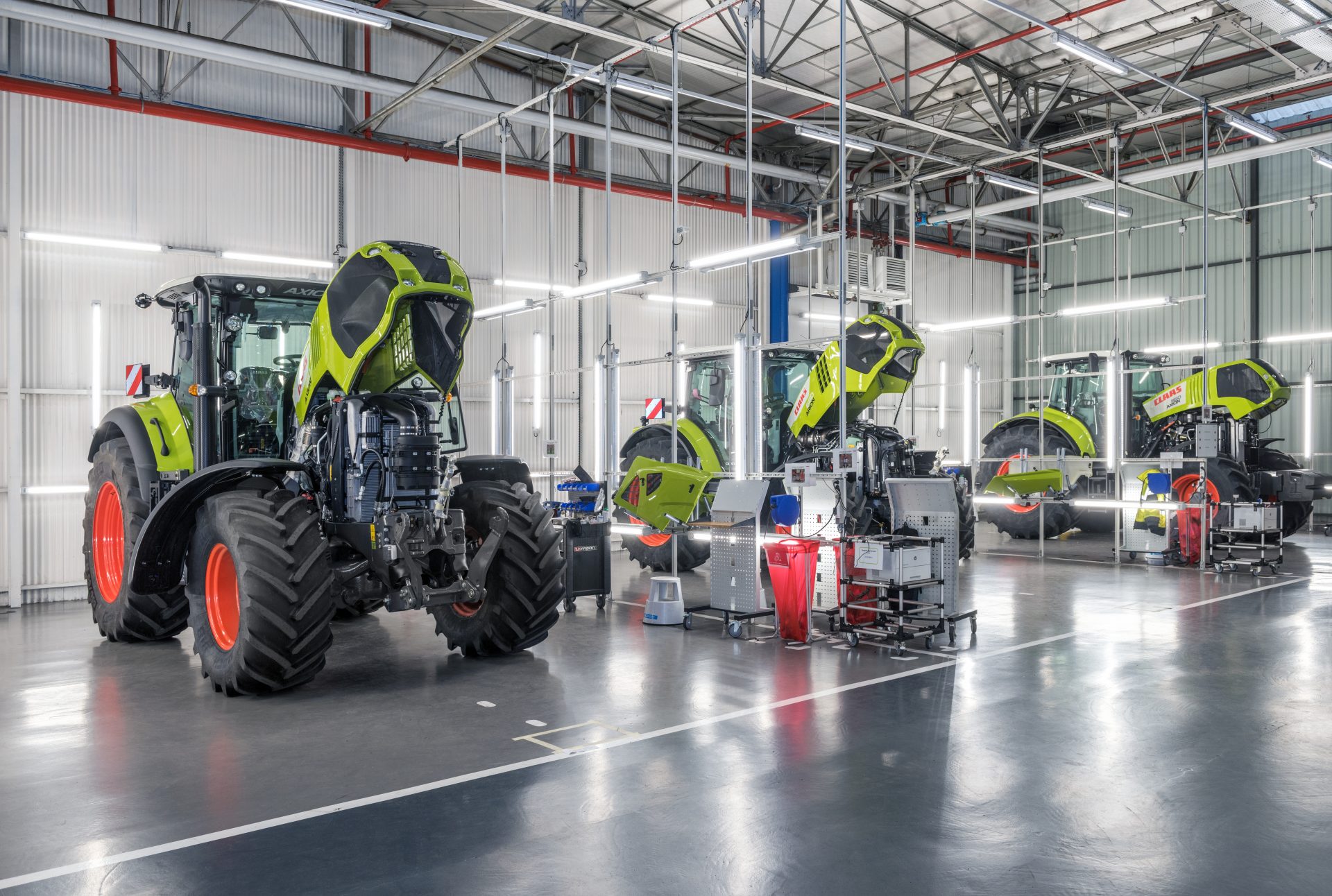
“Our completely refurbished plant in Le Mans raises the bar for the production of premium and connected agricultural tractors,” says Thomas Böck, chair of the Claas Group executive board. “We have therefore opened a new chapter in the continued growth of our global business.”
The company has invested around €80 million in Le Mans, the development centre in Vélizy and the test and validation centre in Trangé since the acquisition of Renault Agriculture in 2003.

